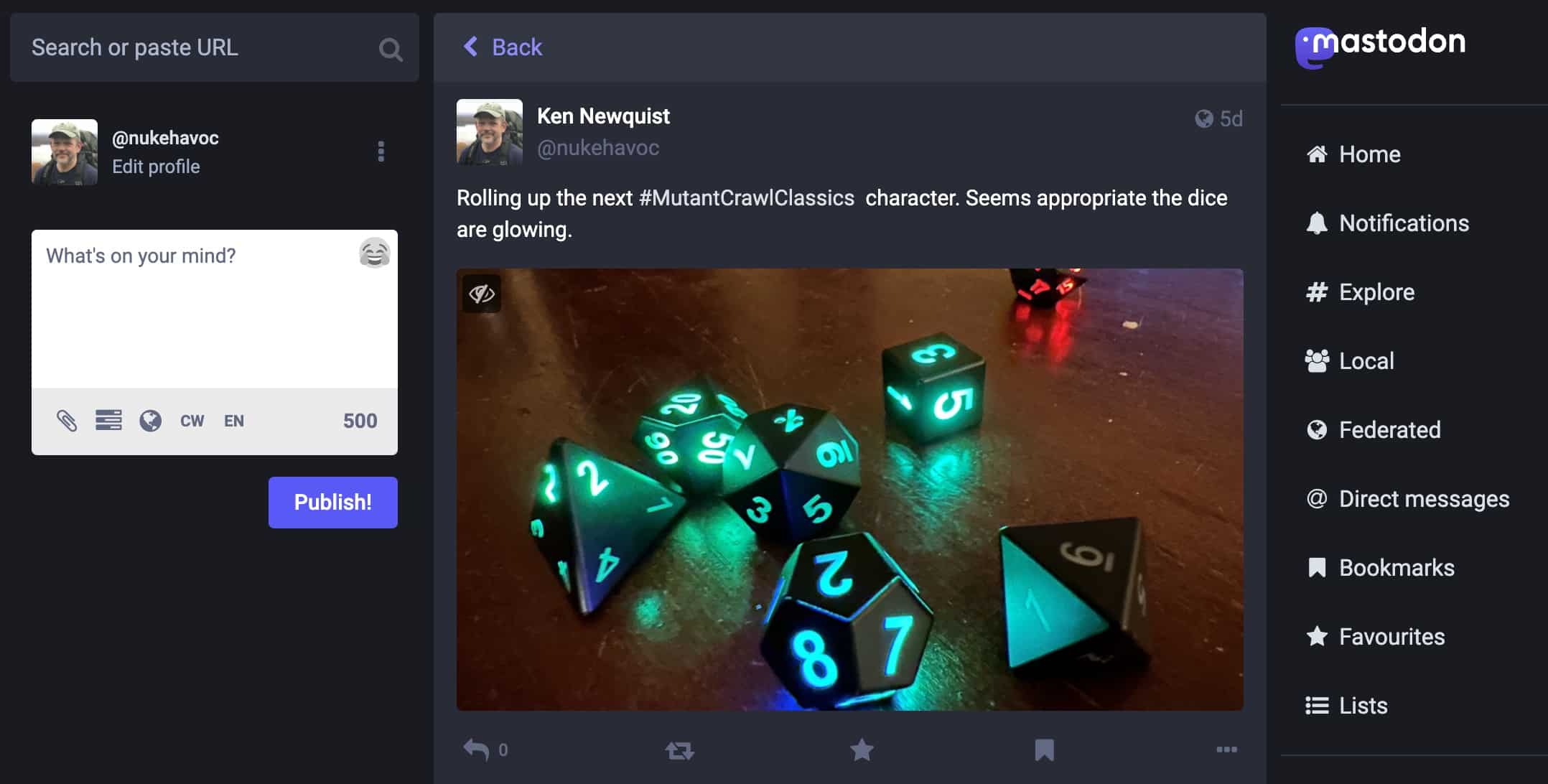Dice.Camp is a Mastodon-based alternative to Twitter built around role-playing games. With Elon Musk’s chaotic neutral leadership style playing havoc with Twitter on a daily basis, many of my online friends have migrated to this and other Mastodon-based social media alternatives.
You can find me there as @nukehavoc. I also post frequent updates for the @LairOfSecrets podcast I do with @vandermore.
Introducing Mastodon
Mastodon is an open-source social media application that anyone can use to create their own Twitter-esque outpost on the Web. As software, it is content/ideology agnostic. Anyone can use it and – as Truth Social demonstrates – anyone has.
Instances can be federated, which means they can be networked together so folks can share posts and follow people throughout the federation. However, this works both ways; one Mastodon site can block another Mastodon site, which can lead to some high-level drama if a particular instance gets a bad reputation (deservedly or not).
Lots of commentary claims Mastodon is harder to use than Twitter (mostly because of the whole ‘multiple instances’ thing), but I found it easy to get started on the platform. That said, I mostly hang out on Dice Camp and don’t spend much time purposefully messing around with the federated aspect. I’m also a veteran of the early days of social media, when we jumped from platform to platform all the time, so picking up something new doesn’t seem that novel or challenging.
Thoughtful Conversation on the Internet? Really?
Overall, I find Dice.Camp to be friendlier and more engaging than Twitter. I’ve had more – and better – conversations with people there in the last three months than I’ve had over the last year on Twitter. In large part, this is because of the instance’s ethos. When you boost something on Dice.camp (the platform’s version of retweeting) there’s an expectation that you’ll offer your own thoughts on the thing you’re promoting.
While this could lead to mindless “love this!”-style posts, in practice people offer insights and commentary on the thing being discussed.
Thoughtful conversation! On the internet! Who’d’ve thought it possible?
In many ways, it reminds me of the early days of social media, when people were less bitter, less brittle, and more likely to engage with grace and goodwill.
Sound interesting? Then follow me at Dice.Camp!

